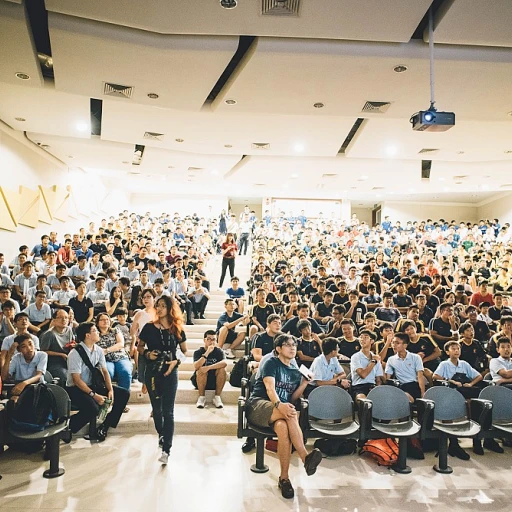
Understanding Generative AI in Workforce Training
Understanding the Role of Generative AI in Workforce Training
Generative AI is a transformative technology that is redefining how we approach workforce training. By leveraging advanced algorithms and machine learning, it enables companies to create dynamic training programs tailored to the unique needs of their employees. This innovative approach provides employees with a more immersive learning experience, helping them develop critical skills required in today’s fast-paced business environment. One of the key benefits of generative AI is its ability to adapt to the individual learning styles of workers. It analyzes data to understand how employees learn best, allowing training programs to be customized to enhance learning development. This tailored approach not only improves employee engagement but also maximizes the potential of each worker. The adoption of generative tools in employee training ensures that companies can quickly respond to the evolving skill demands of the market. This is particularly important in startup environments where agility and rapid development are crucial. Business leaders recognize that investing in AI-driven training tools can provide a competitive edge by ensuring their workforce is skilled, adaptable, and ready for future work challenges. Employing generative AI in corporate training also allows for real-time feedback and adjustments. As employees engage with the training material, the AI tools can provide immediate insights into their progress, enabling training providers to make necessary adjustments on the fly. This level of responsiveness ensures that companies maintain high levels of employee satisfaction and skill acquisition. To explore more about navigating challenges in HR training processes with cutting-edge solutions, visit the relevant resource.Benefits of Generative AI for Startups
Unlocking the Potential of Generative AI in Startups
The implementation of generative AI in workforce training offers an array of significant benefits for startups aiming to stay competitive and innovative. Startups typically operate with limited resources and are constantly looking for efficient ways to upskill their staff and enhance productivity. Integrating AI technologies into employee training programs propels companies toward these goals.
One of the primary advantages is personalized learning. Generative AI adapts to individual learning styles and paces, enabling employees to receive customized training experiences. This level of personalization promotes deeper engagement and accelerates skills acquisition.
The utilization of AI for training provides startups with scalability and flexibility. Training programs can be rapidly developed and updated using real-time data analytics, ensuring that education remains relevant and up-to-date. This adaptability is crucial for growing startups where rapid change and development are consistent themes.
Furthermore, generative AI can facilitate efficient resource allocation. By automating repetitive tasks, AI tools free up valuable time for human resources and learning development teams, allowing them to focus on more strategic initiatives. This shift can significantly enhance workforce development initiatives and overall organizational efficiency.
The incorporation of machine learning into training also fosters continuous improvement and skill development. With AI-driven data analysis, companies can identify skill gaps and align their training programs accordingly. This proactive approach ensures that employees remain competent and capable of meeting the evolving demands of their roles, ultimately contributing to business growth and success.
Moreover, startups utilizing AI technologies in training can improve employee engagement. By providing interactive and responsive learning environments, generative AI keeps workers motivated and invested in their professional growth. The integration of these advanced tools in skills training reflects the progressive and innovative culture that modern startups strive to cultivate.
Lastly, generative AI enhances the capacity for cross-disciplinary training. Startups have the opportunity to nurture versatile employees who can adapt to various roles, fostering a dynamic and resilient workforce. This aligns with the principles of navigating challenges in HR training processes as startups must be agile to survive and thrive in competitive markets.
Challenges in Implementing Generative AI
Addressing Barriers to Implementing Generative AI
As promising as generative AI is for workforce training, companies face several challenges in its implementation. Understanding these barriers is essential for business leaders aiming to harness this technology effectively. Here, we break down some of the key obstacles to consider when integrating generative AI tools into training programs.
Data Privacy and Security Concerns
One of the primary concerns with deploying generative AI in training is data privacy and security. With the technology feeding on vast amounts of data to train machines, businesses must ensure employee information is protected. Companies that fail to secure data effectively risk breaches that could compromise sensitive employee details. Ensuring stringent data protection measures are in place is critical to mitigating these risks.
Resource Allocation and Infrastructure
Implementing generative AI requires significant infrastructure and resources. From acquiring the right software to maintaining robust IT systems, the initial investment can be hefty, especially for startups. Businesses need to weigh the cost of implementation against potential gains in workforce development and productivity. This includes not only financial investments but also skilled personnel to manage AI systems effectively.
Integration with Existing Systems
Another challenge lies in integrating generative AI with existing business processes and systems. Many companies already employ other digital tools for employee training and might find it challenging to synchronize these with new AI-driven solutions. Achieving seamless integration requires assessing current systems and adapting them to support new technologies effectively. This is vital for training providers and managers who aim to create a cohesive learning environment.
Resistance to Change
Change can often be met with resistance from employees and management alike. The introduction of generative AI in workforce training can evoke anxiety about job security and the changing nature of work. It is crucial for companies to emphasize that AI will augment, not replace, human jobs. Leaders must focus on transparently communicating the benefits of AI tools in skills training and employee engagement, fostering an environment of trust and collaboration.
Lack of Expertise in Artificial Intelligence
Many businesses, especially startups, may lack the necessary expertise needed to deploy and manage generative AI effectively. Building expertise involves investing in skills development, both in-house and through partnerships with AI specialists. Training employees to work alongside AI tools also requires a shift in learning and development strategies, ensuring workers are comfortable and proficient in using new technologies.
For those seeking to overcome these challenges, it's worth exploring career opportunities where AI capacity is being effectively leveraged across industries, providing insights on surmounting implementation hurdles. Visit how these challenges are being addressed in practical settings.
Case Studies: Successful Implementations
Examining Real-Life Generative AI Applications in Corporate Training
To understand the transformative power of generative AI in training, we turn to practical examples where startups have successfully harnessed this technology for workforce development. These cases illustrate how generative tools are revolutionizing learning and employee engagement, leading to enhanced skills and productivity.
One prominent example involves a tech startup offering cloud-based services. By integrating generative AI into their customer service training programs, the company enabled real-time learning experiences for their employees. The AI analyzed vast amounts of interaction data to generate realistic scenarios, allowing workers to practice customer engagement in various contexts. This approach replaced traditional instructor-led sessions and significantly improved the skills of their workforce.
Another compelling case is that of a healthcare company utilizing generative technology to train its workforce in data interpretation and analysis. With the use of AI-driven tools, employees were exposed to complex datasets, facilitating learning development tailored to individual capabilities. The result was a more knowledgeable workforce primed for future work in data-driven healthcare services.
A retail business also exemplifies how generative AI can be effectively applied to train employees. Facing high turnover, they turned to AI to develop targeted corporate training sessions that adapted to the diverse learning styles of their workers. This data-driven approach fostered greater employee retention and skill enhancement.
These instances demonstrate that generative AI is not merely theory; it is a practical solution that business leaders in the public and private sectors can employ to boost the potential of their teams and drive skill attainment in a rapidly evolving landscape. As more companies adopt this technology, the future of training employees will likely entail more personalized and effective learning paths conducive to dynamic business environments.













